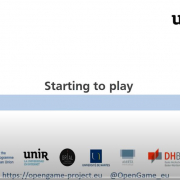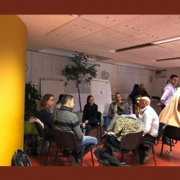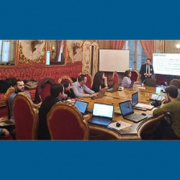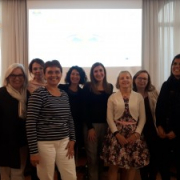The paradox of too much support
13 years ago, a colleague from Utrecht University (in the Netherlands) and I wrote the article The paradox of the assisted user: guidance can be counterproductive. The bottom line looks simple: if somebody gets too much help, they will learn less. Too much support might be counterproductive. Even my grandmother, with no school education, who grew up in a mountain village in central Spain, shared the reflection immediately. As a reminder, I will highlight that 13 years ago means no Whatsapp and Instagram, and almost no Facebook, Skype or Netflix-ish services, not to mention so many other daily tools that today jam the global communication networks with silly smileys, excessive selfies and typo-ed short, cryptic sentences. The students now collect more means, channels and tools to get connected, retrieve and post information, share, create, explore, and spend the time. University teachers, in turn, complain about that diversity and how the individual’s over-exposure to the ICT matrix kills the desire for learning, the ability to focus, the deep thinking process, and so many other beautiful features of a grown-up human being.
The most common self-analysis of our performance shows an over-attention, over-support, over-concerned attitude from the teachers
However, we should look into ourselves. I think that university teachers (and teachers, at large, in every level) spoil our students. We patronize them, summon them, tell them off, and reward them. Sometimes it is as if Pavlov in person was guiding our actions. Instead of teaching we do radical parenting with them. In every workshop, in diverse countries, from East to West, North to South, the complaints resound: the students do not deliver, do not pay attention, do not focus, do not perform, etc. Recently, I was sharing a vivid work session with my colleagues at An-Najah National University (Nablus, Palestine), and the same feeling was discussed openly, irrespective of culture, language and context. And what about us, the faculty members? What about the academic layer? Are we doing just ok, good, excellent or lousily? The most common self-analysis of our performance shows an over-attention, over-support, over-concerned attitude from the teachers; I guess that it comes from some sort of childhood trauma or complex or lack of opportunities when we were younger. However, we are not their parents, priests or parole officers. We support their effort if they show that effort, but we cannot lower the bar just because they do not reach it. We accompany them the full way, if they want to run that extra mile. However, we cannot be pulling up all the time. If we do so, we epically fail, as teachers, as mentors and as supporters. If we support too much, the supported will not be developed by themselves.
We must stop so much care, concern and students spoiling. We play poorly and we complain later about the result. Even worse: we blame others. We blame them. This is not the way. The student is responsible for their learning as a learner, and they are responsible of their lives as persons. We can get along, walk along and come along; however, we cannot do their job and replace their joy for learning by ours. It is immature and ineffective, and I mean from the teachers, and not from the students. We all need to fall, raise, try, fail, win, lose and, in short, grow up. Let the student be a student. Let the learner learn.
Daniel Burgos
Nablus, Palestine
19 de febrero, 2019














